"Iron Jerry Rawlings": The author of the prosperity of Ghana and the man who supported Russia in the Crimea
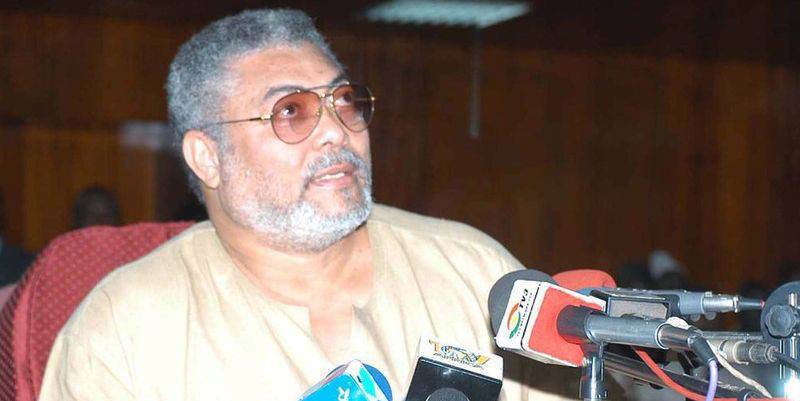
Jerry Rawlings is respected in Africa. Compared to other African presidents and dictators, he really looks attractive. Neither excessive cruelty is associated with his name, as in the case of the Ugandan Idi Amin or the Central African Bokassa, nor numerous corruption scandals, as in the case of the Zairian Mobutu. Today, Jerry Rawlings is the aksakal of African politics. In the spring of 2014, the former president of Ghana, speaking at a meeting of the Pan-African Parliament, openly supported Russia's position on the Crimea. We note that Rawlings has not led the state for a long time, he has no financial obligations with the Russian state.
Supporting the reunification of Crimea with Russia is his personal ideological position, which directly stems from the experience of the political struggle, which has many decades. It is worth noting that not every African leader would dare to openly express his point of view, the oppositional course of European states and the United States, which retains enormous influence on the African continent. But Jerry Rawlings is not "everyone." He is a man of amazing destiny, miraculously escaped execution after suppressing a failed uprising, who for twenty years almost single-handedly ruled the country and voluntarily transferred power to an elected government., Now lives in private life, preferring to “shine” only as an honored guest, lecturer and peacemaker.
Jerry Rawlings led Ghana twice - in the 1979 year and from 1981 to 2001 years. During his reign, he managed to turn this state into a relatively prosperous one by the standards of not only its closest neighbors, but also the African continent as a whole. At least, to preserve peace and stability in it, which is important against the background of constantly fighting Liberia or Sierra Leone, eroded by the internal contradictions of Nigeria and other countries of West Africa.
The state of Ghana is located on the coast of the Gulf of Guinea. In the west, the country is bordered by Côte d'Ivoire, in the east - by Togo, in the north - by Burkina Faso. The name of this territory on the European maps of the New Time - Gold Coast - speaks for itself. In the 16th century, 10% of world gold was mined here, which attracted military expeditions of almost all European maritime powers to the Ghanaian coast. It was visited by the Portuguese and the Dutch, the Germans and even the Danes with the Swedes.
But in the XIX century, the final point in the history of European colonization of the Gold Coast was put by Great Britain, having annexed the lands of numerous tribal unions to their African possessions. However, the largest and strongest tribal association - Ashanti - to the last resisted attempts to colonize its lands. Only in 1896, the British colonialists managed to achieve the proclamation of Ashanti as a protectorate, and in 1901, finally to incorporate the lands of the warlike tribes into the colony of the Gold Coast. Since the Gold Coast had not only economic, but also military-political significance for Great Britain, the British authorities rather effectively contributed to the development of this West African territory. In many respects, thanks to the foundation laid by the British, the colony of the Gold Coast in the general list of other African possessions of the European powers occupied a rather advantageous position.
Unlike other African colonies, Gold Coast had many components to start its own way as an economically developing state. Thus, the efforts of British planters and industrialists here created a developed agriculture, focused on the export of cocoa beans, and the mining industry, primarily focused on gold mining. The average resident of the Gold Coast not only worked on plantations or mines, but also had a more or less decent standard of living - the income per capita in the Gold Coast was comparable to Mexico at the time of independence.
Considering that the overwhelming majority of the population of Gold Coast adopted Christianity (today it is professed by no less than 75% of the population of Ghana), the British contributed a lot to educating the local population. In an effort to rely on loyal officials and native intelligentsia, the British promoted the development of educational institutions in the colony. On the other hand, talented immigrants from wealthy families, to receive a European education, and themselves sought to go to study in the metropolis or other Western countries.
So, Kwame Nkrumah, the founding father of Ghanaian statehood, was educated at the University of Lincoln in the US state of Pennsylvania, and later attended lectures at the London School of Economics. Nkrumah developed an interesting concept of "African nationalism", which had a significant influence on the views of the hero of our article, Jerry Rawlings. In particular, Nkrumah sought to synthesize both Christianity, and Marxism, and non-Marxist socialism, criticizing the concept of “Negro exclusivity” and stating the need to consolidate all African countries, including the Arab states of the Maghreb. As a philosopher and political theorist, Nkrumah is still revered not only in Ghana, but also in other African countries. With good reason, it can be considered one of the fathers of the integration of African states, which resulted, among other things, in the creation of the Pan-African Parliament.
In many respects, it was thanks to the efforts of Nkrumah and his comrades who also received education in colonial colleges or in Europe and the USA, Gold Coast in 1957, one of the first African countries, gained independence and a new name - Ghana, in honor of the powerful empire territories of West Africa in the early Middle Ages. Perhaps, among other British possessions in Africa, it was Ghana that could most of all rely on full socio-economic development and relative political stability after decolonization.
Modern Ghana is a small state in which, however, more than 25 million people live - half of the population of the same Ukraine. Like many other African countries, Ghana is a multi-ethnic or, more precisely, multi-ethnic country. On its territory live a variety of ethnic groups, among which are the most numerous Akan - the creators of the state Ashanti, Ewe, Mole, Adangme, Gourmet, Grucy. The main income to the population of the country comes from agriculture, of which cocoa beans remain the key export crop. At the same time, the territory of Ghana is very rich in minerals, which attracts the attention of foreign mining companies. Currently, the country is among the top ten key exporters of gold, and its position in the export of diamonds is also strong.
Initially, the British pursued a policy of "divide and rule" in Ghana, as in other colonies, in an effort to rely on representatives of some ethnic groups as opposed to others, and vice versa. In particular, the northerners and southerners were opposed. Northerners were more concerned with the culture of the “Sahel” - the African Pre-Sugar, which is characterized by strong Arab-Muslim influence. Southerners are classic “forest Africans”, who once professed traditional cults, close to voodooism, and then Christianized by Protestant and Catholic preachers.
In addition to the intellectuals from among the representatives of the African tribal elite, the descendants of mixed Afro-European marriages, for understandable reasons, also joined the ranks of the educated inhabitants of the Gold Coast. Mulatam itself, by virtue of its origin, shone a higher social status than pure Africans. After all, the colonialists considered the mulatto politically more reliable contingent, moreover, that part of the descendants of mixed marriages, who were recognized by their “white” parents, had the opportunity to rely on the support of European relatives, which meant very, very much.
The hero of this article, Jerry Rawlings, was born in a mixed African-European family. His father, a Scotsman by nationality, worked as a pharmacist, and his mother, who was descended from the Ewe people, had notable roots and a decent condition, running his own hotel. With such parents, Jerry Rawlings was by no means the last person and could count on receiving a decent education and a subsequent career in any sphere of public activity. Like many of his peers, impressed by the decolonization and construction of new states, Jerry chose the profession of a soldier. He graduated from the Ghanaian Military Academy, and received a pilot’s degree at the Takoradi Aviation School, where he was considered the most capable student of the school.
By the time the young officer Rawlings received his assignment to the Air Force, practically nothing remained of the former stable Ghana, which was considered one of the exemplary British colonies. A pan-Africanist and anti-imperialist Kwame Nkrumah, flirting with the Soviet Union and China, was overthrown in 1966 in the year of the military coup and left the country. Following the departure of Nkruma followed a series of military coups. The generals succeeded each other as head of state, and the country's economic situation was rapidly deteriorating.

Ghana: Worldwide Computer Dump
Rule 1966 to 1969 Lieutenant General Joseph Ankra, once the first officer born in Gold Coast, who received lieutenant shoulder straps in the British colonial army, canceled the socialist reforms begun by Nkrumai and reoriented to the capitalist development path. First, he visited the United States, the United Kingdom and the Federal Republic of Germany, showing his loyalty to Western interests. It seemed that General Ankra specifically decided to throw the country back - he canceled the free secondary education and free medicine introduced by Nkrumaya, stopped the construction of new industrial facilities. The relations of Ghana with the socialist countries were actually stopped.
In the end, Ankru decided to shift its own supporters. Brigadier General Akwazi Afrifa, also a British colonial army, served on the National Liberation Council of Ancré as Commissioner of Finance, Commerce and Economy, with the support of other senior officers of the Ghanaian army, dismissed Ankra, accusing him of corruption. Afrifa, understanding the deplorable state of the Ghanaian economy, not only continued the course of cooperation with Western countries, but also tried to restore relations with the Soviet Union. Afrifa also took such a strange step for the African ruler as the transfer of power to the civilian president. In August, 1970 temporarily presided over Rafael Ollenn, then the country was headed by Edward Akufo-Addo - the former chairman of the Supreme Court, elected to the presidency by an electoral college.
However, civilian rule did not last long. Two years later, the civilian president was overthrown by Lieutenant Colonel Ignatius Kuta Achampong. The commander of the 1 Infantry Brigade, stationed in the south of the country, Achampong was known for his passion for good living. Obviously, even by the standards of Ghana, the lieutenant colonel’s riotous lifestyle was so striking that the command refused him to confer the next military rank of “colonel”, which caused the deadly resentment of the ambitious officer and indirectly contributed to the latest military coup.
Now Lieutenant-General Achampong proclaimed a partial return to the principles of Kwame Nkrumah, counting on the growth of popularity in the country. However, real success in the six years of the Achampong economy did not reach the economy, and in 1978, Achampong was replaced by the Chief of the General Staff of the Ghanaian army, Lieutenant General Fred Acuffo. The latter also assured the population of Ghana of good intentions and proclaimed a policy of “improving the economy”, which in reality led to even greater impoverishment of the population.
In this political and economic context, the first coming to power of Jerry Rawlings took place. It was preceded by the 15 rebellion of May 1979. A group of troops led by thirty-two-year-old Lieutenant of the Air Force Jerry Rawlings captured a number of military facilities and a radio studio. However, government forces succeeded in the shortest possible time to crush the uprising and arrest its leaders, including Rawlings. The mistake of the authorities was that Rawlings and his like-minded people decided to judge not by a military court, but by an open court.
Lieutenant aviation Rawlings, by then enjoying some popularity among young officers and soldiers, had turned the process into a propaganda speech, following the example of one of his idols, the leader of the Cuban revolution, Fidel Castro. June 4 was followed by a re-appearance of the military under the leadership of Major Boake Gyana, an old friend of Rawlings. Rawlings himself and his associates were released, the army commander, General Odartey-Wellington, was killed. On June 11, 1979, Fred Akuffo and other leaders of the Ghana Supreme Military Council surrendered to the victorious revolutionaries. Two weeks later, on June 26, Fred Akuffo, his predecessor as head of state, General Afrif, and several other senior military officials were shot. Ghana has entered the "Rawlings era."
Jerry Rawlings, like many leaders of the African states of 1970's - 1980's, actively used anti-imperialist rhetoric. Sympathizing with the leftist ideas, at the same time, Rawlings sought to maintain a certain independence, without becoming a frank satellite of the USSR, like the Ethiopian leader Mengistu Haile Mariam or the leaders of the former Portuguese colonies of Angola and Mozambique. You can talk about a certain closeness of Jerry Rawlings to the ideas of the Libyan Jamahiriya leader Muammar Gaddafi. So, Rawlings sought to combine the left-wing socialist idea with national specifics, formulating his own alternative development path for Ghana.
Originally led by the Rawlings Revolutionary Council of the Armed Forces (AFRC), which included the 15 junior officers of the Ghanaian army, set the task of eradicating government corruption and handing over the latter to civilian government. 18 June 1979 was held elections, which won the little-known hitherto diplomat Hill Limann, who led the National People's Party. However, for two years, the civilian government of Limann has failed to reanimate the Ghanaian economy that was broken during the years of the ruling regimes. Moreover, Lehmann, who actually came to power through revolutionary officers, decided to minimize the influence of Rawlings on politics and send him to resign. The response from the military was a new coup on the night of January 1 1982. All power passed to the Interim Council of National Defense. Led by VSNO Jerry Rawlings.
Beginning with 1982, the Provisional Council of National Defense began a radical transformation of the entire political, cultural, and economic life of the country. On the reforms carried out during this period by Jerry Rawlings, it becomes clear that he had experienced the distinct influence of the caddaph ideology. Thus, the activity of all the old administrative bodies was terminated. The executive power in the country was handed over to the Revolution Protection Committee (CPR). This event was carried out within the framework of the decentralization of government and the transfer of full power to the revolutionary people, that is, in the spirit of the concept of the Jamahiriya, which was actively promoted by Muammar Gaddafi around the same period. The remit of the defense committees of the revolution was wide enough. The new authorities not only carried out general local administration and social protection of the population, but also fought against corruption and crime, and most importantly, were the main propaganda institutions of revolutionary democracy.
In parallel, the Rawlings government switched to the implementation of economic measures aimed at bringing the country out of the crisis. In particular, conditions were created for attracting foreign investors and developing the private sector of the economy. By this, Rawlings obtained significant loans from the International Monetary Fund and a number of western states. The economic growth of Ghana did not take long and in the middle of the 1980-s. the country has felt all the advantages of the new economic policy. Ordinary Ghanaians felt the reduction of inflation, improvement of social security, medical care. The most important advantage for the country was the policy of returning thousands of Ghanaians from emigration who were forced to leave the country during the crisis to work abroad.
Modern statistics show very good social indicators for Ghana. At least in comparison with other African countries. Thus, in the country the percentage of HIV-infected is extremely low by African standards - only 1,9% of the population. Over 57% Ghanaians older than 15 are literate years, half of the country's population lives in cities. Unlike neighboring states, modern Ghana does not know of bloody wars and ethnocides. In many ways, all these results were the result of a long reign of simple aviation lieutenant Jerry Rawlings.
In foreign policy in 1980, the Rawlings focused on the anti-imperialist movement. In particular, Ghana recognized the national liberation movement in Western Sahara and the sovereignty of the Saharawi Arab Democratic Republic (SADR). The closest ally of Rawlings was another West African revolutionary - the charismatic leader of neighboring Burkina Faso, Thomas Sankara. When Sankar was overthrown and killed, Rawlings was very saddened. It is rumored that the Ghanaian military, who were preparing to fly to the aid of Sankara, were late for a very short time and the news of the killing of Sankara had already come from Burkina Faso.
Among the population of Ghana, and other West African countries, Rawlings enjoyed considerable popularity. His figure was a serious contrast compared to corrupt and complacent generals - the dictators of most neighboring countries. So, in his youth, Rawlings emphasized his status as a military man not with a luxurious general's uniform, but with a field-dark blue uniform of a pilot and a constant beret on his head. Even the young Rawlings preferred to live on the territory of the barracks, showing with his whole life that the interests of the state and his army for him were above his own life. By the way, unlike many other political leaders in Africa, after a successful coup and even after many years in power, Jerry Rawlings did not arrogate to himself a marshal's, general's, and even a colonel's title, but was content with a modest lieutenant - with whom he received a nationwide popularity and the post of the head of the Interim Council of National Defense.
In the 1990-s, under the influence of events in the world, the political situation in Ghana changed. Jerry Rawlings decided on significant changes in the life of the state. Political parties were allowed, and revolutionary phraseology gradually collapsed. Rawlings himself, after political parties were allowed in Ghana, headed the National Democratic Congress Party, which became part of the Socialist International. At the same time, it is difficult to deny the obvious merits of Rawlings for the country and for Africa as a whole. During his reign, not only the economic situation of Ghana was significantly improved, but a policy was also pursued to resolve armed conflicts in neighboring states, primarily in Liberia. In 1994, Mr. Rawlings was elected Chairman of the Economic Community of West African Countries.
In this retreat from the revolutionary phrase, the Ghanaian leader was not alone - even Colonel Gaddafi, a man who possessed a great deal of financial and organizational resources due to the oil status of Libya, hurried to dissociate himself from the ultraradical ideas of his youth. However, as we remember, this did not save him from the brutal murder of Western mercenaries, and Libya from ruin. Perhaps one of the main merits of Jerry Rawlings is that the former military pilot was able to maintain peace and relative economic stability in a small African country. Compared with its closest neighbors, Ghana really looks very attractive and difficult to doubt that grateful descendants will say “thank you” for this, including Lieutenant Rawlings.
In the 2000 year, the 53-year-old politician makes a decision about his final resignation from government posts. In the upcoming presidential election, Rawlings did not participate and focused entirely on social and teaching activities. However, Rawlings’s bold statement in support of the reunification of Crimea with Russia says that “iron Jerry”, as Ghanaians used to call him during his leadership of the country, remained anti-imperialist in his heart, and even lecturing at Oxford University does not prevent the illustrious politician from expressing a position fundamentally different from the American-European.
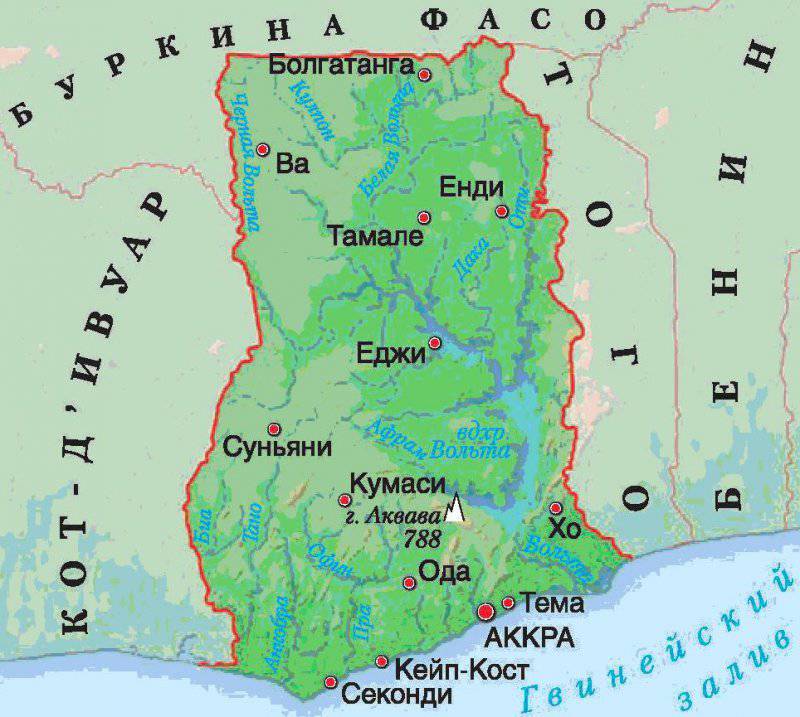
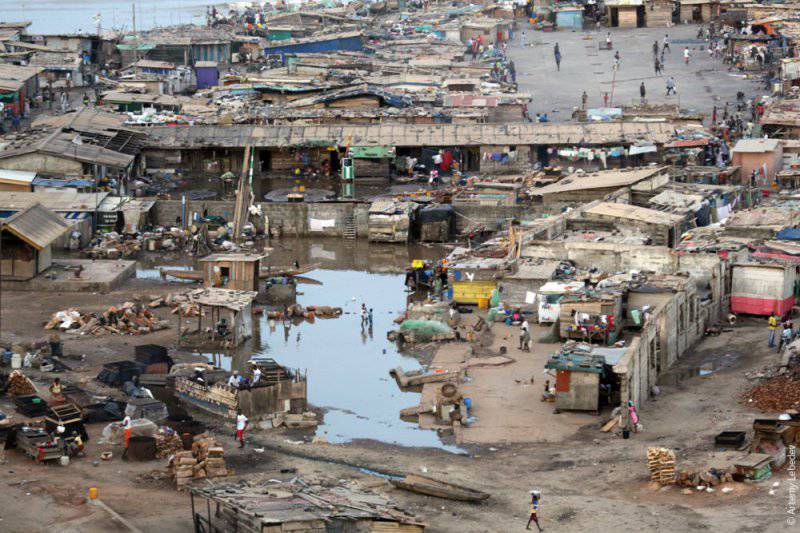
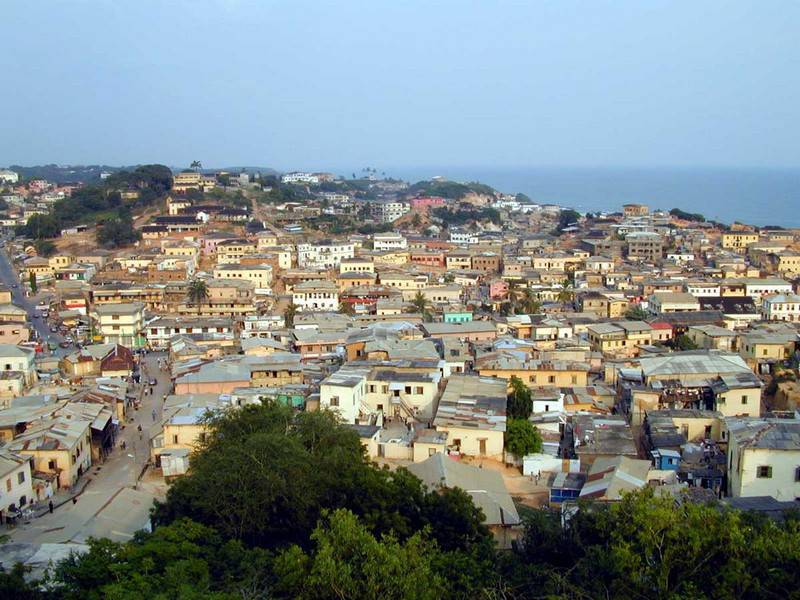
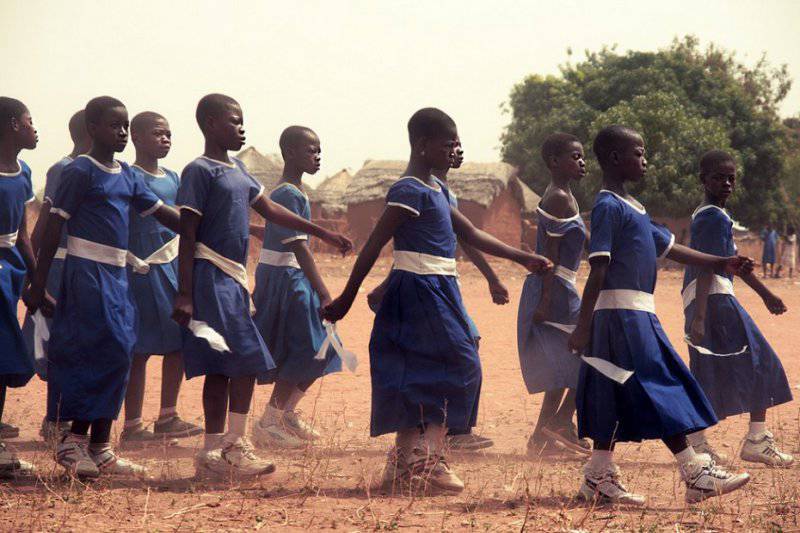
Information